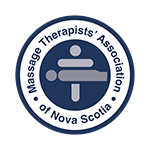Address
168 Hobson's Lake Drive
Suite 301, Unit 4
Beechville, Nova Scotia, B3S OG4
Work Hours
Monday to Friday: 9am – 5pm
Weekend: Closed
This glossary is for guidance and convenience only and does not provide an exhaustive list of all terms referenced in MTANS documentation. For more detailed information or clarification on any of the terms listed, Registered Massage Therapists (RMTs) should refer to the official Standard of Practice, policy, or guideline and their related acts and regulations.
An RMT is in a position of power in the client-RMT relationship. Abuse is a violation of that power. When an RMT abuses the power they hold, they violate the trust and respect of the client. Abuse occurs when an RMT utilizes the therapeutic relationship to meet their own personal interests or needs. An RMT who abuses a client acts outside of professional boundaries. Abuse may be financial, physical, sexual, verbal and/or emotional exploitation of the client.
An RMT is in a position of power in the client-RMT relationship. Abuse is a violation of that power. When an RMT abuses the power they hold, they violate the trust and respect of the client. Abuse occurs when an RMT utilizes the therapeutic relationship to meet their own personal interests or needs. An RMT who abuses a client acts outside of professional boundaries. Abuse may be financial, physical, sexual, verbal and/or emotional exploitation of the client.
An MTANS member who has successfully completed the application process, paid their dues in full and completed their necessary CEU requirements. Full (active), members have a vote during MTANS annual and semi-annual general meetings (AGM/SAGM) and are eligible for nomination to the Board or may volunteer on MTANS committees. Only active members are covered by liability insurance and have direct billing privileges.
Generally, refers to collecting electronic addresses, such as those for email, instant messaging, and social media using computer programs. These programs may harvest addresses, either by collecting them from external sources — for instance, by scraping websites — or by generating a list of such addresses. With very limited exceptions, the Personal Information Protection and Electronic Documents Act (PIPEDA) prohibits address harvesting.
Means the use of space or time in any type of public medium, including, but not limited to, the Internet, radio, television, or a commercial publication such as a brochure, to promote professional services, or enhance the image of the member.
Under the Nova Scotia Age of Majority Act, a person ceases to be a minor when they reach the age of nineteen years. This age is recognized by some provincial legislation, while other provincial legislation provides for benefits and rights when an individual reaches a younger age. The Personal Health Information Act (PHIA) recognizes the common-law principle of “mature minors,” which recognizes that the capacity to consent is incremental and situational. The capacity of each individual minor must be considered in the context of each episode of care.
One who, though not eligible under the Societies Act, is by virtue of their professional interests committed to the purpose of the Association and include, but are not limited to, directors or educators of recognized schools of massage therapy and MTANS approved educators offering continuing education opportunities. After receipt of a written request to join and the prescribed dues, a majority vote of the Board of Directors will result in associate membership status.
A limit you can set on what you will accept of another person’s words or actions. Each person has boundaries which define their personal space. Physical boundaries determine responses to close physical presence and to touch. Individuals also have boundaries defining their psychological and emotional space. Each person interprets questions or remarks as appropriate/inappropriate, unobtrusive/intrusive, or comforting/discomforting. Personal boundaries can vary widely among individuals according to such things as life experience, gender, age, culture, and personal preference. Professional boundaries are defined by the professional role and the limits of the professional role. Boundary violations are an abuse of power.
